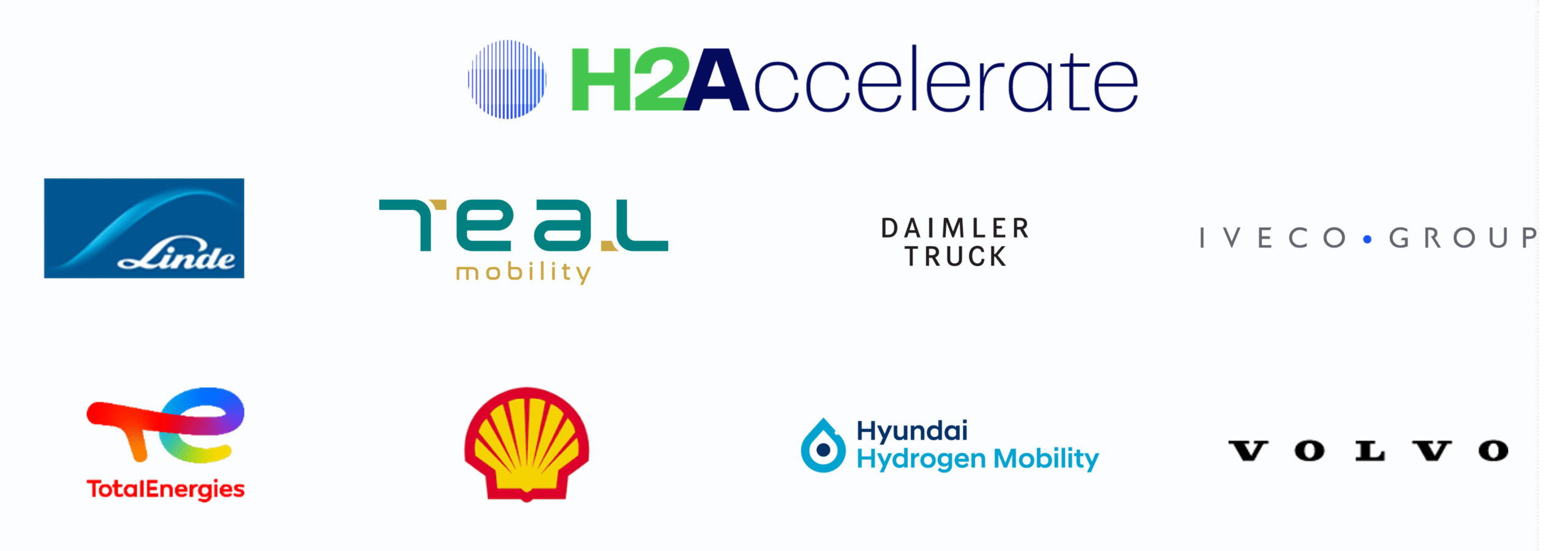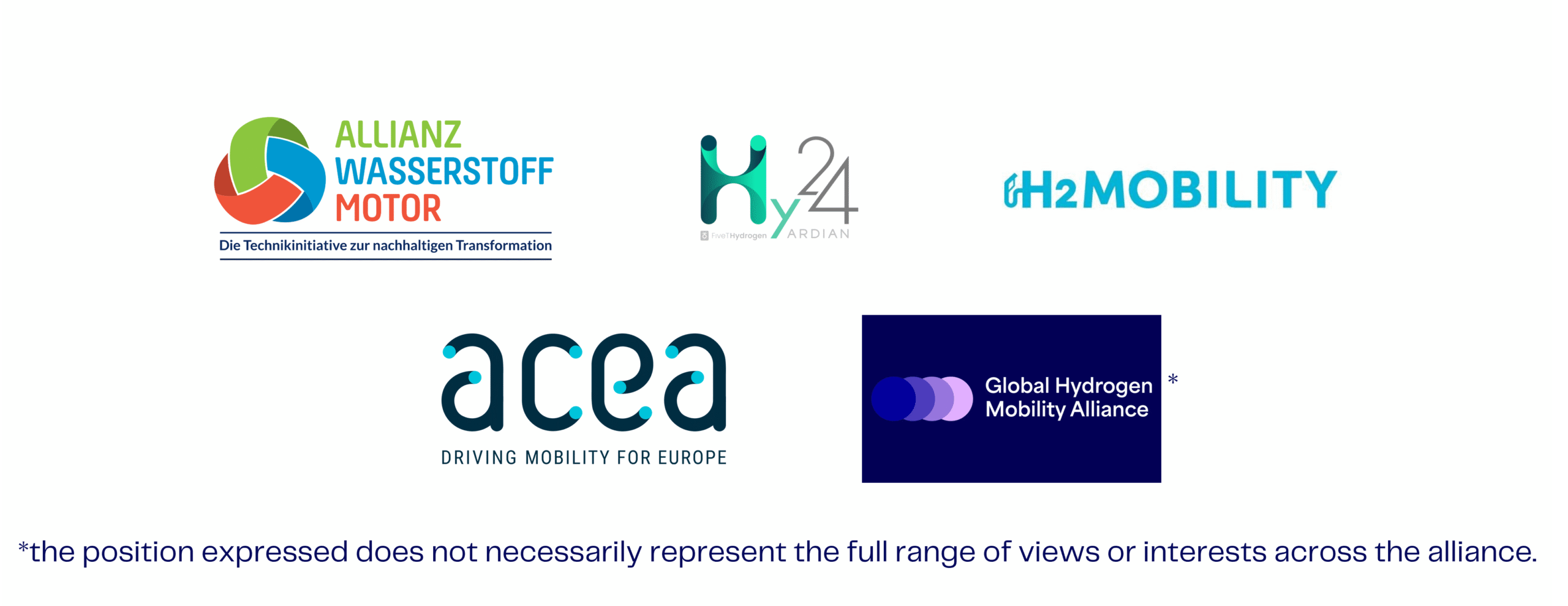H2Accelerate calls for the uptake of H2-ICEVs to accelerate the road transport sector’s decarbonisation
The H2Accelerate collaboration, with the support of other industry leaders, has today published a new whitepaper outlining the role of hydrogen internal combustion engine vehicles (H2-ICEVs) in accelerating Europe’s zero-emission vehicle deployment.
H2-ICEVs can help scale the roll-out of hydrogen refuelling infrastructure by driving early fuel demand, while providing a long-term zero-emission solution for very heavy load road and off-road applications, all while building on Europe’s existing knowledge and manufacturing base. To leverage the opportunity of H2-ICEVs, Europe must provide the right support to enable large-scale adoption of these vehicles before the end of the decade.
The potential of H₂-ICEVs: A scalable zero-emission solution for Europe
H₂-ICEVs are emerging as a new component of Europe’s zero-emission mobility strategy. H₂-ICEVs can now qualify as zero-emission vehicles under the updated Heavy-Duty Vehicles CO₂ standards, published in May 2024. As such, these vehicles present an opportunity to accelerate the deployment of zero-emission transport solutions before the end of the decade. Drawing on decades of expertise with conventional internal combustion engines, the automotive sector can repurpose existing manufacturing capacity, supply chains, and engineering expertise to scale H2-ICEV deployment. As a result, H₂-ICEVs can achieve scaled deployment by the end of the decade and are projected to be the least upfront capital-intensive zero-emission technology until battery electric (BEV) and fuel cell electric vehicle (FCEV) markets reach higher maturity.
Beyond serving as a transition technology towards FCEVs, H₂-ICEVs are also emerging as a competitive zero-emission solution for particularly high-load applications across a range of distances, including non-road mobile machinery (NRMM).
Furthermore, if deployed at scale, H₂-ICEVs can drive early offtake for the AFIR-mandated pan-European hydrogen refuelling stations (HRS) network, providing confidence to HRS developers that sufficient demand for hydrogen fuel exists and unlocking scaled investments in this infrastructure. H2-ICEVs have the capacity to deliver immediate carbon reduction benefits while supporting the wider adoption of hydrogen as a transport fuel, paving the way for future FCEV uptake.
Recommendations to European policymakers to enable H₂-ICEV scale-up
Despite meeting the definition of zero-emission vehicle, H₂-ICEVs are not yet classified equally with other zero-emission technologies across Europe. H2-ICEVs have been excluded from incentivising mechanisms and, in some Member States, remain unable to refuel from existing HRS infrastructure due to existing energy taxation legislation. To unlock the full potential of H₂-ICEVs and accelerate decarbonisation, European policymakers should:
- Ensure that hydrogen ICEVs are classified as zero-emission vehicles across all EU Member States.
- Ensure equal treatment of zero-emission vehicle technologies by:
- Ensuring that hydrogen used in an ICEV is subject to the same taxation exemptions as hydrogen used in a FCEV, allowing both vehicles to refuel from the same HRS infrastructure.
- Ensuring that hydrogen trucks are included as eligible technologies for national and European zero-emission vehicle deployment projects.
- Ensuring Member States treat H2-ICEVs and FCEVs equally when implementing RED II/RED III certificates.
- Continuing to fund research projects into hydrogen combustion engines through European funding schemes such as Horizon Europe.
H₂-ICEVs represent a strategic opportunity for Europe to deploy a cost-effective, scalable zero-emission technology before the end of the decade, while leveraging Europe’s existing automotive manufacturing base. Equal policy support will be critical to ensuring that these vehicles play their full role in decarbonising heavy-duty transport.
Hannah Bryson-Jones, Spokesperson for the H2Accelerate collaboration, said:
“Hydrogen internal combustion engines are emerging as a key component of Europe’s zero-emission mobility strategy. This technology can be deployed rapidly, at scale, and at a cost-competitive price with diesel equivalents, while supporting the growth of a pan-European hydrogen refuelling network this decade. With a level policy playing field, H₂-ICEVs can accelerate the decarbonisation of heavy-duty transport and support a widespread hydrogen refuelling network.”
The full whitepaper can be downloaded from the H2Accelerate website.

The collaboration would like to thank the following companies and associations for their support in developing this whitepaper:
